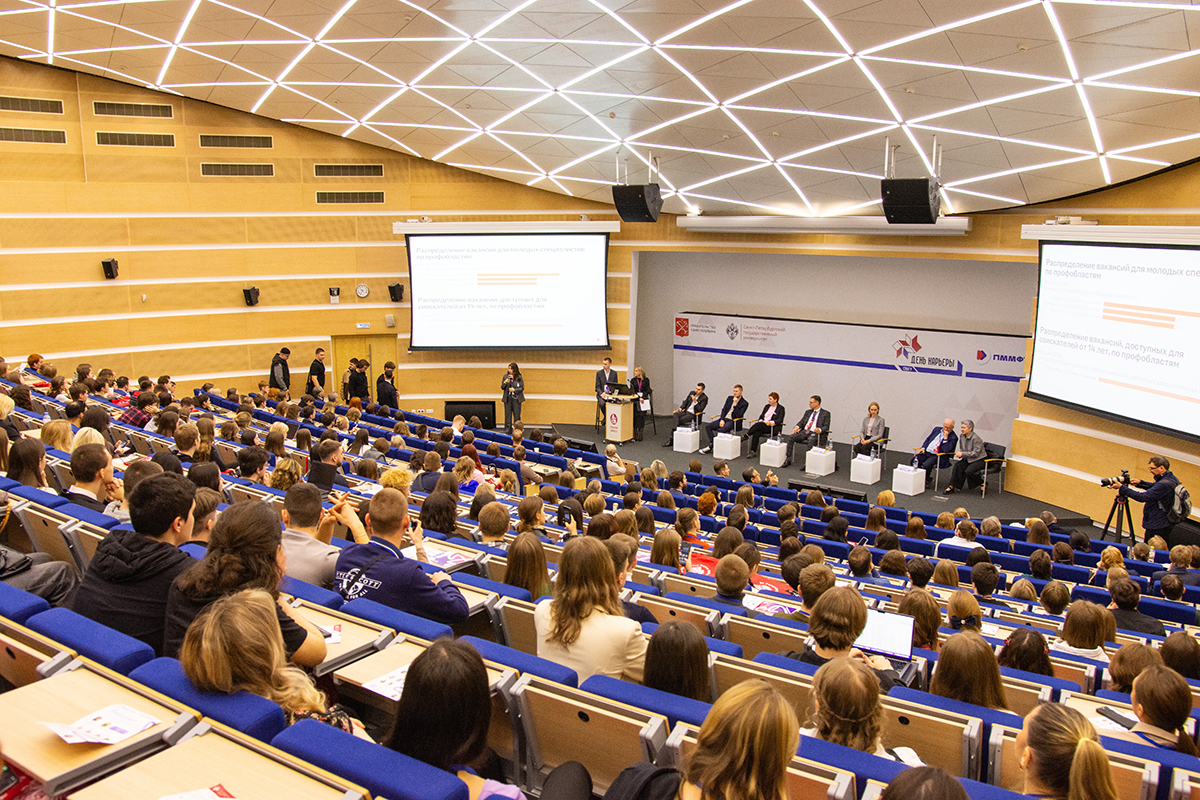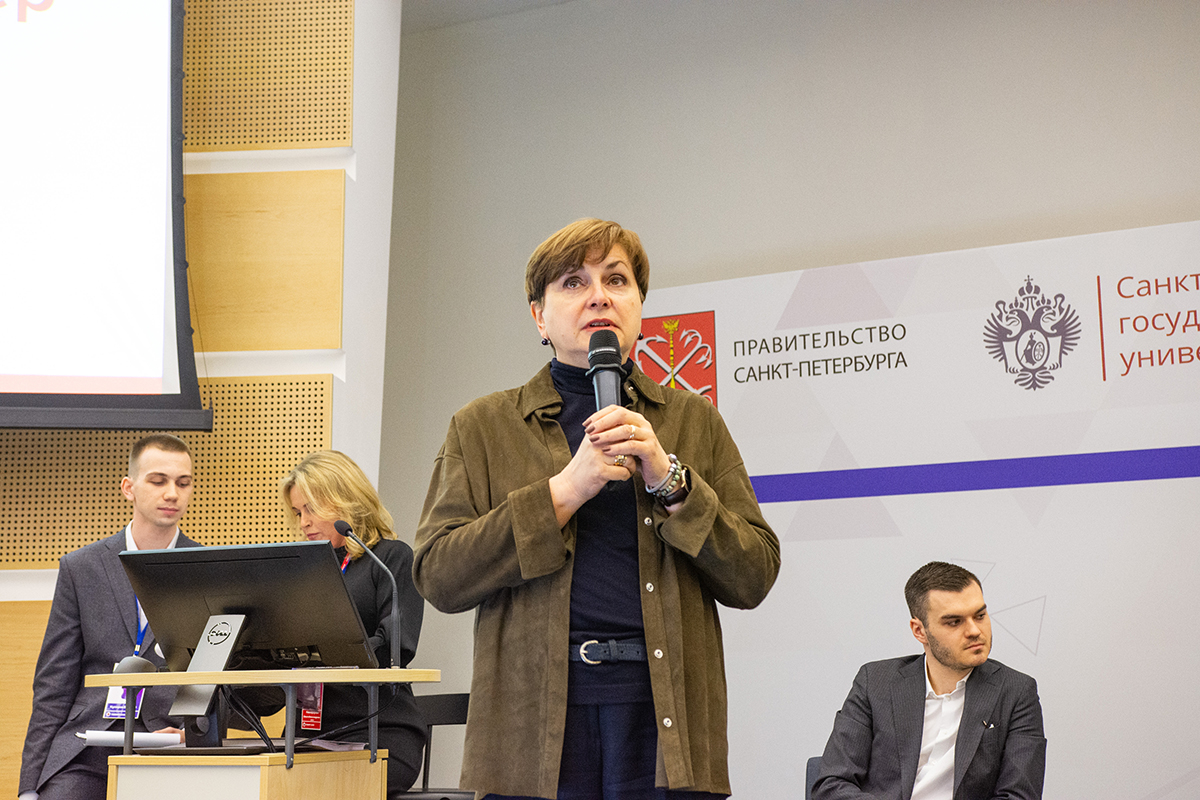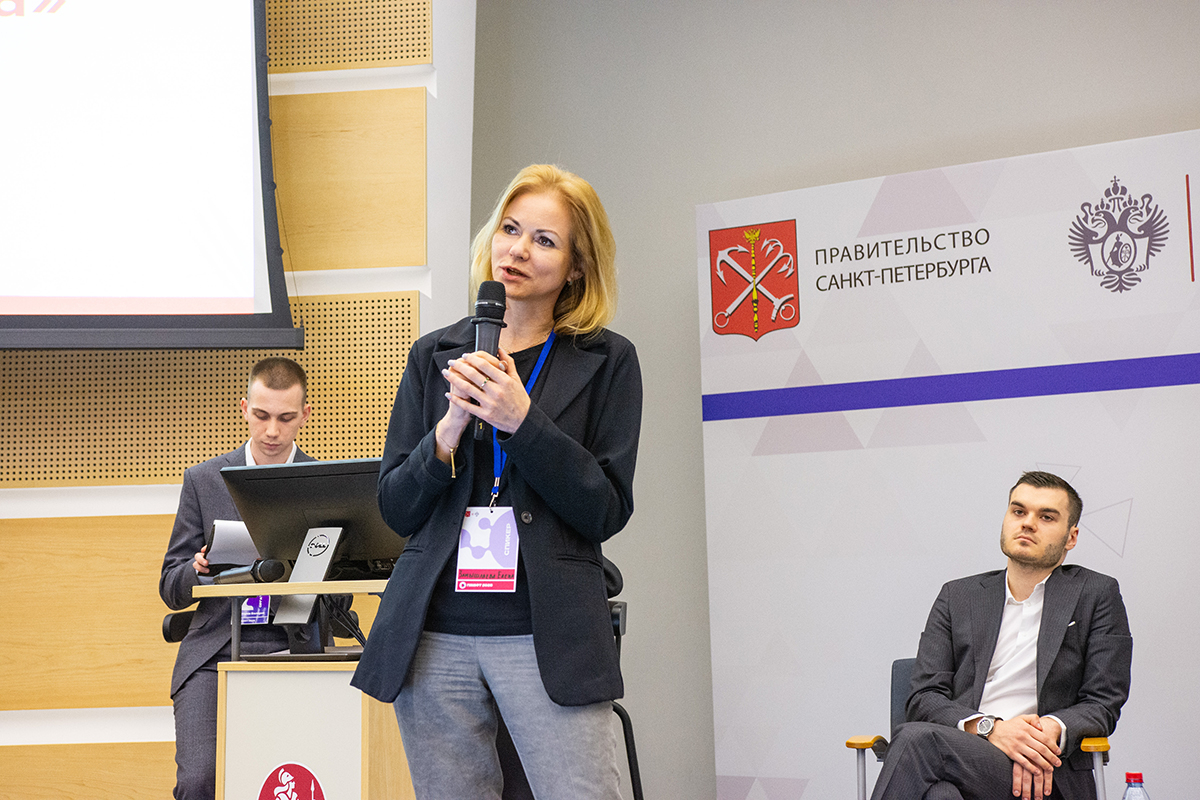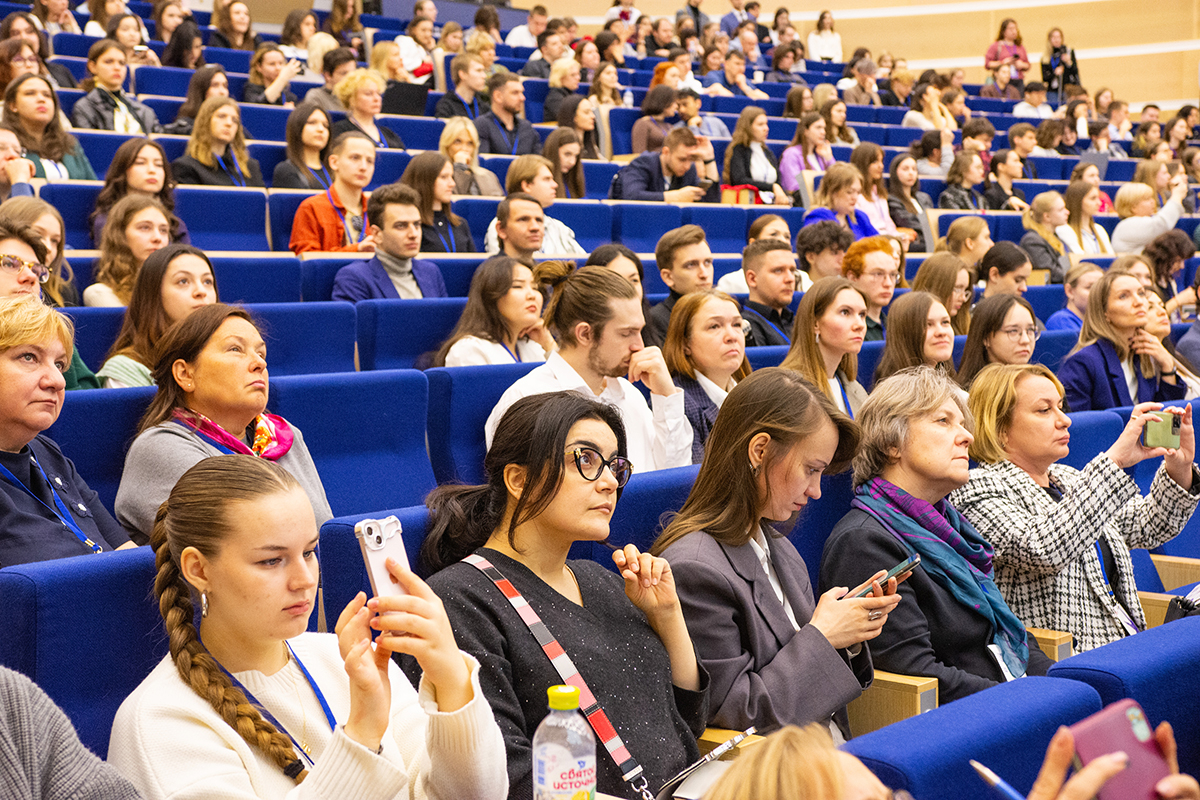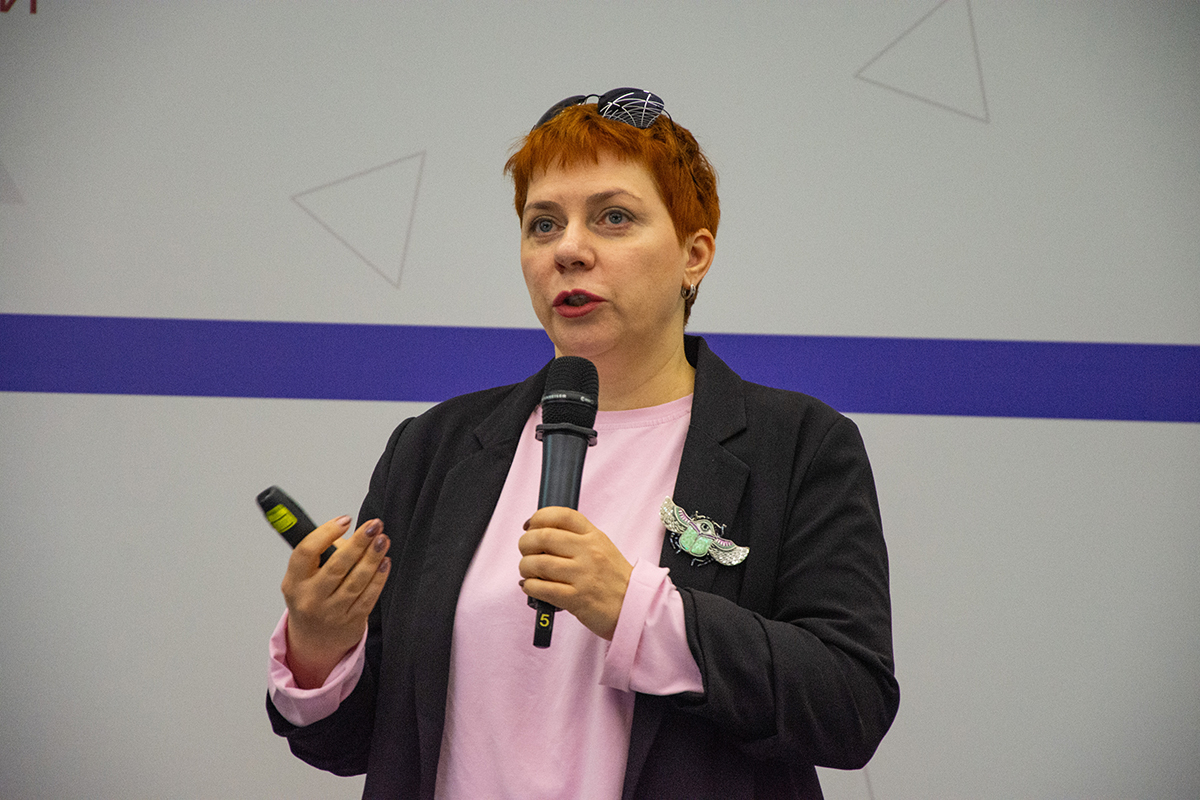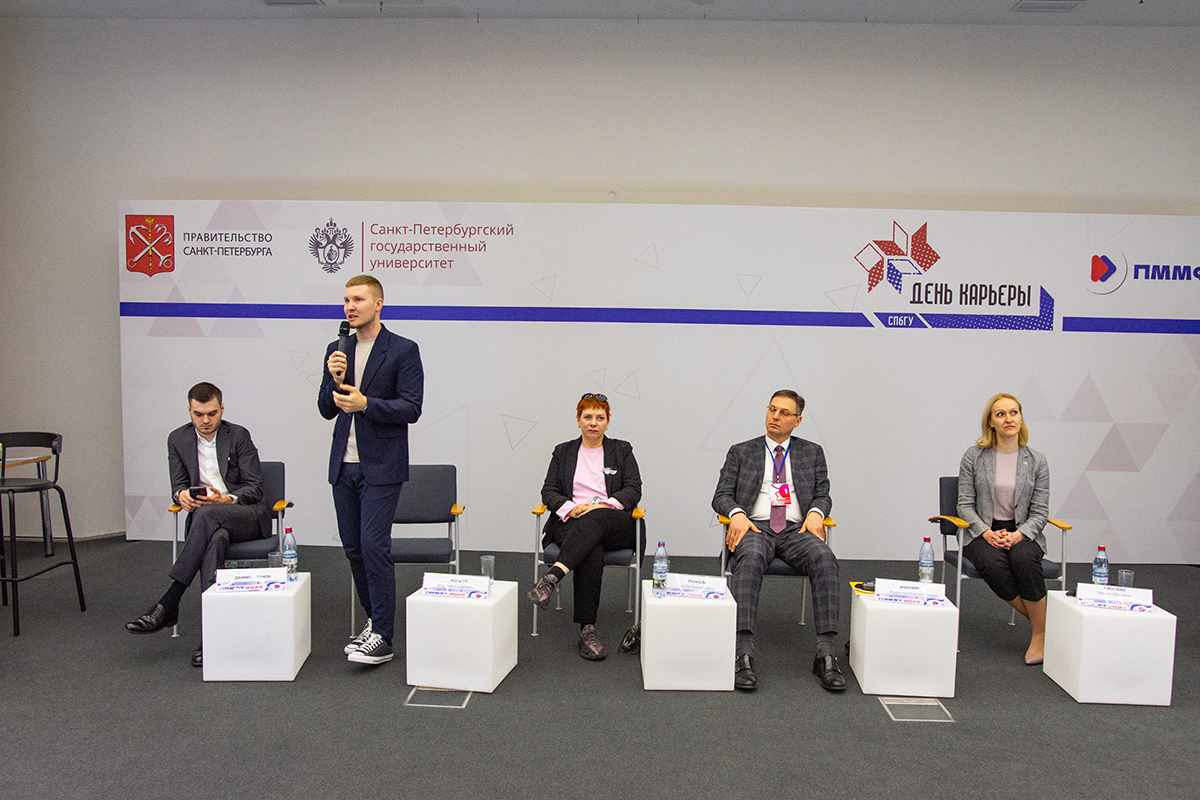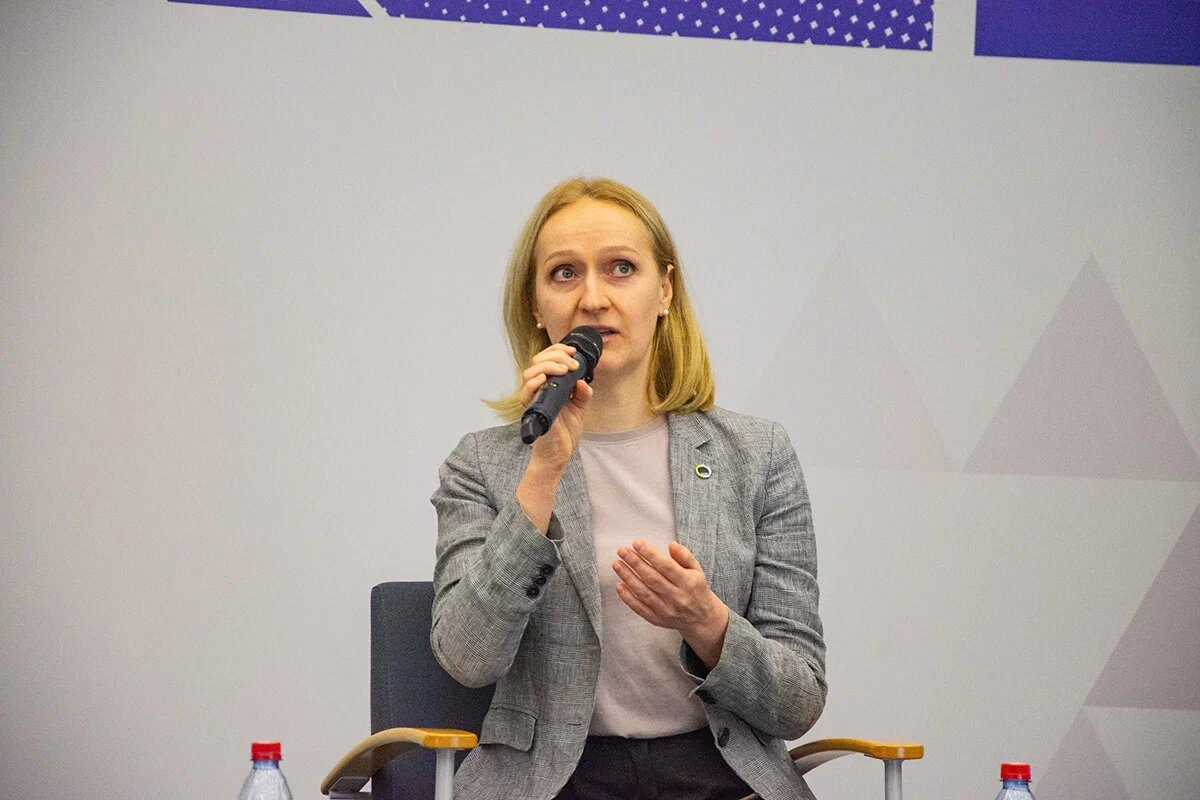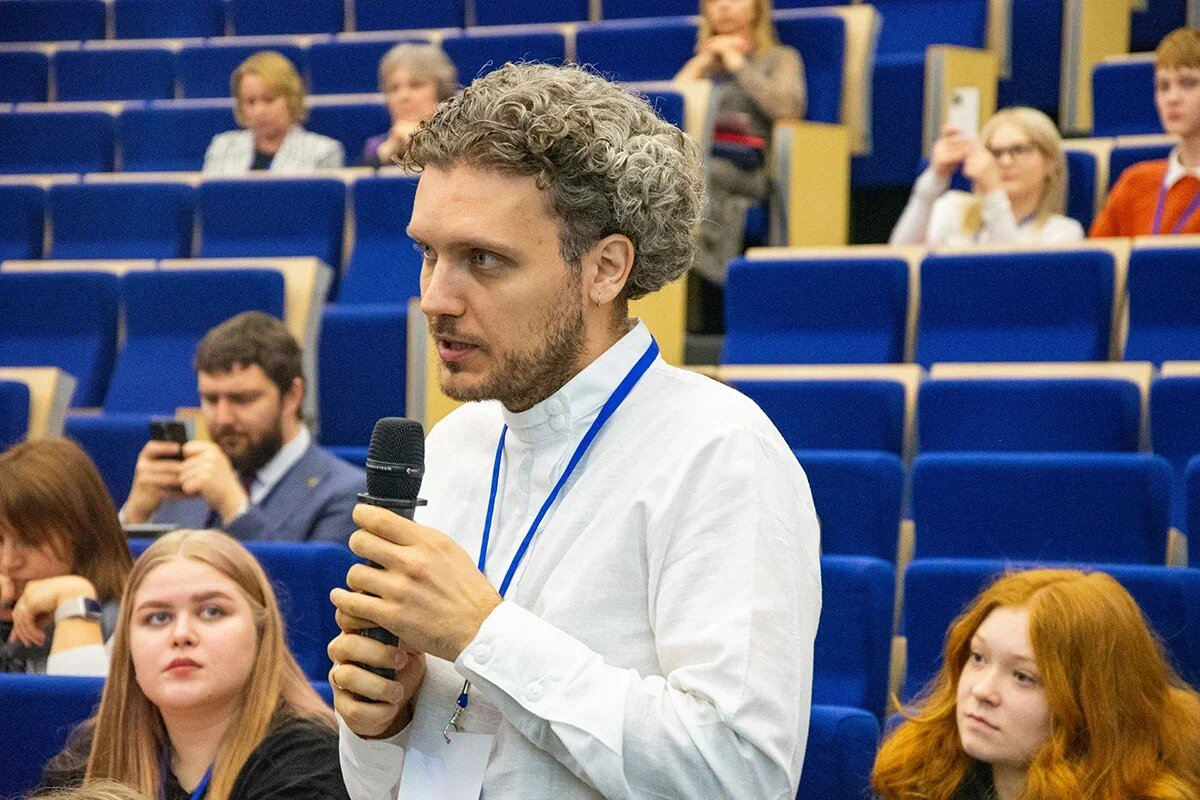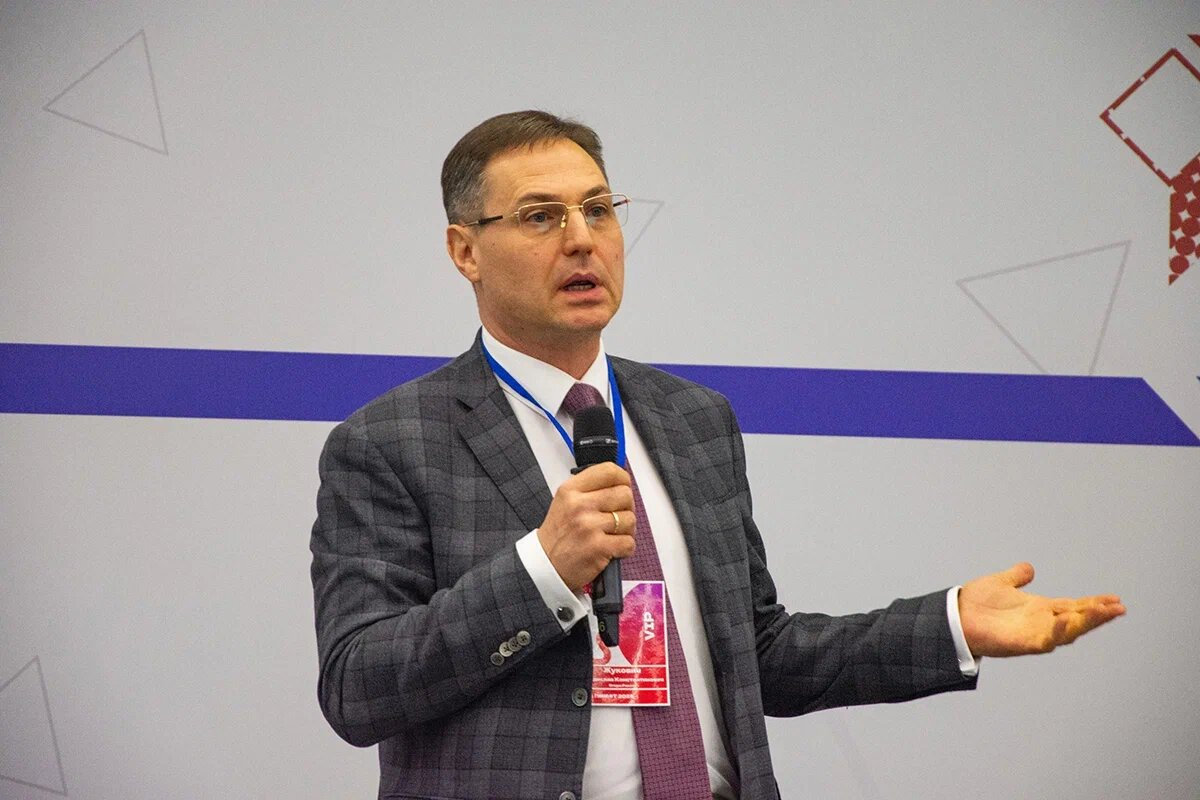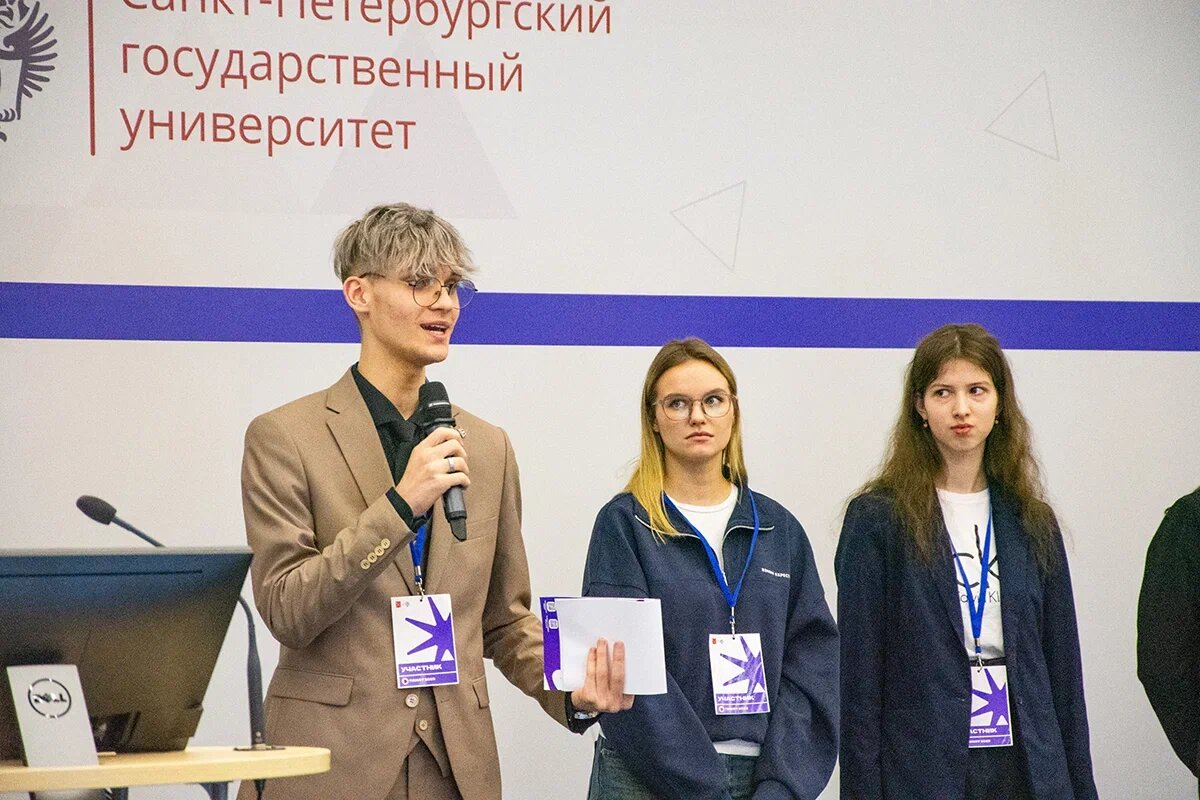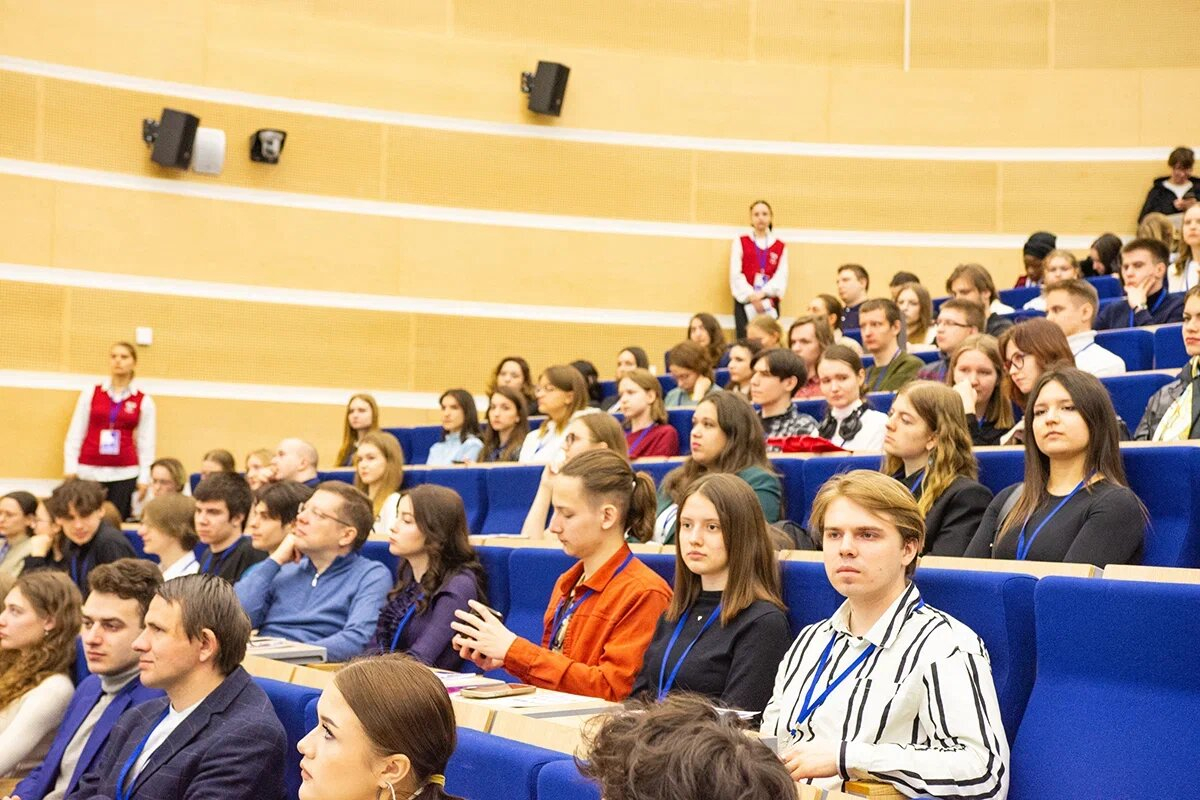New market of professions and types of flexible working: the 9th International Labour Forum at St Petersburg University
The 9th International Youth Labour Forum has opened at the Mikhailovskaya Dacha campus of the Graduate School of Management at St Petersburg University. It is a large-scale career event for students, which launches the main programme of the annual Labour Forum in St Petersburg. This year’s participants discussed key challenges of the professional market, the impact of digitalisation on the motivation of future employees, and the role of early-career professionals in the transformation of professions.
The forum included a plenary session titled "The young generation as a driver of labour market transformation", which discussed what competencies are most in demand and sought after in the labour market, how job requirements are changing, and what role educational institutions play in preparing high-calibre specialists ready for new professional challenges.
Marina Lavrikova, Senior Vice-Rector for Academic Activities at St Petersburg University, addressed the participants in the discussion with a welcoming speech. She emphasised that the Youth Labour Forum, which has become an integral part of the International Labour Forum, particularly focuses on issues relating to updating academic programmes, search for new training formats, and adaptation of companies to the values and attitudes of the current generation of workers.
The labour sphere must promptly respond to the most relevant state tasks and make a positive contribution to their solution. The country is in dire need of people ready to work in typical forms of employment: manufacturing sector, transport sector, in those sectors that represent the backbone of our economy.
Marina Lavrikova, Senior Vice-Rector for Academic Activities at St Petersburg University
Several years ago, Marina Lavrikova recalled, St Petersburg University initiated the St Petersburg International Labour Forum, since the main indicator of the quality of education is, first of all, the success of graduates in the labour market, their demand and compliance with the expectations of companies. According to Marina Lavrikova, multilateral cooperation of applicants, students and graduates with employers, representatives of recruitment agencies, government agencies and public organisations makes it possible not only to provide the traditional fundamental education of experienced professionals for the country, striving for continuous improvement of skills, but also helps to find new paths of career development.
This year, the 9th St Petersburg International Youth Labour Forum was organised by the Government of St Petersburg, the Committee for Labour and Employment of St Petersburg, the Interparliamentary Assembly of Member Nations of the Commonwealth of Independent States, ExpoForum International, the Agency for Human Capital Development in the Northwestern Federal District, and St Petersburg University. The event is supported by the Federal Service for Labour and Employment (Rostrud) and the Ministry of Labour and Social Protection of the Russian Federation.
Currently, the employment rate of graduates in Russia is about 70%. Among the key national goals is to provide young people who have completed their studies at universities with maximum opportunities for career growth. To successfully implement this task, coordinated work is needed not only by educational institutions, but also by government agencies, said Elena Zamyshliaeva, Senior Deputy Chairperson of the Committee for Labour and Employment of St Petersburg. Government agencies are ready to provide support to students, organise career guidance events, send talented young people to internships, and create conditions that will facilitate the professional development of young specialists, she said.
The discussion brought together Denis Smirnov, Deputy Head of the State Labour Inspectorate; Vladislav Zhukovich, Vice‑President of the All-Russian Non-Governmental Organisation of Small and Medium Business OPORA RUSSIA; Daniil Chugunov, Deputy Director for Interaction with Government Agencies at the HeadHunter; Irina Kiseleva, Head of the Human Resources Department at the Centre for Talent Development of the Northwest Bank of Sberbank; and Clement Fortin, Vice Rector for Academic Affairs of Skoltech, Deputy Director of the Centre for Systems Design, and Member of the Canadian Academy of Engineering.
The scientific conference "Human capital ecosystem: new forms of cooperation and interaction" also discussed issues related to finding effective solutions to ensure effective transition from school to work and self-realisation through work. The thematic sections of the conference covered priority areas of development of the personnel market: from threats associated with the workplace automation and retraining of specialists to the complexities of legal regulation of new forms of employment, issues of psychological adaptation among workers, and the role of artificial intelligence.
Early-career researchers presented the results of their research, which comprehensively covered economic, social and psychological aspects, in particular the development of a model of the current demand for qualified personnel in the field of information technology for the next five years.
According to Viktoriia Bazzhina, Associate Professor in the Department of Economic Theory and the History of Economic Thought at St Petersburg University and moderator of the section "Transformation of professions and social responsibility of business in the new economy", the ability to adapt to upcoming changes will become a decisive factor for the successful integration of young people into the professional sphere. From this point of view, the conference organised by St Petersburg University is a unique platform for developing strategic solutions aimed not only at overcoming current challenges, but also at creating a competitive knowledge economy that combines scientific advances with the practical experience of industry leaders.
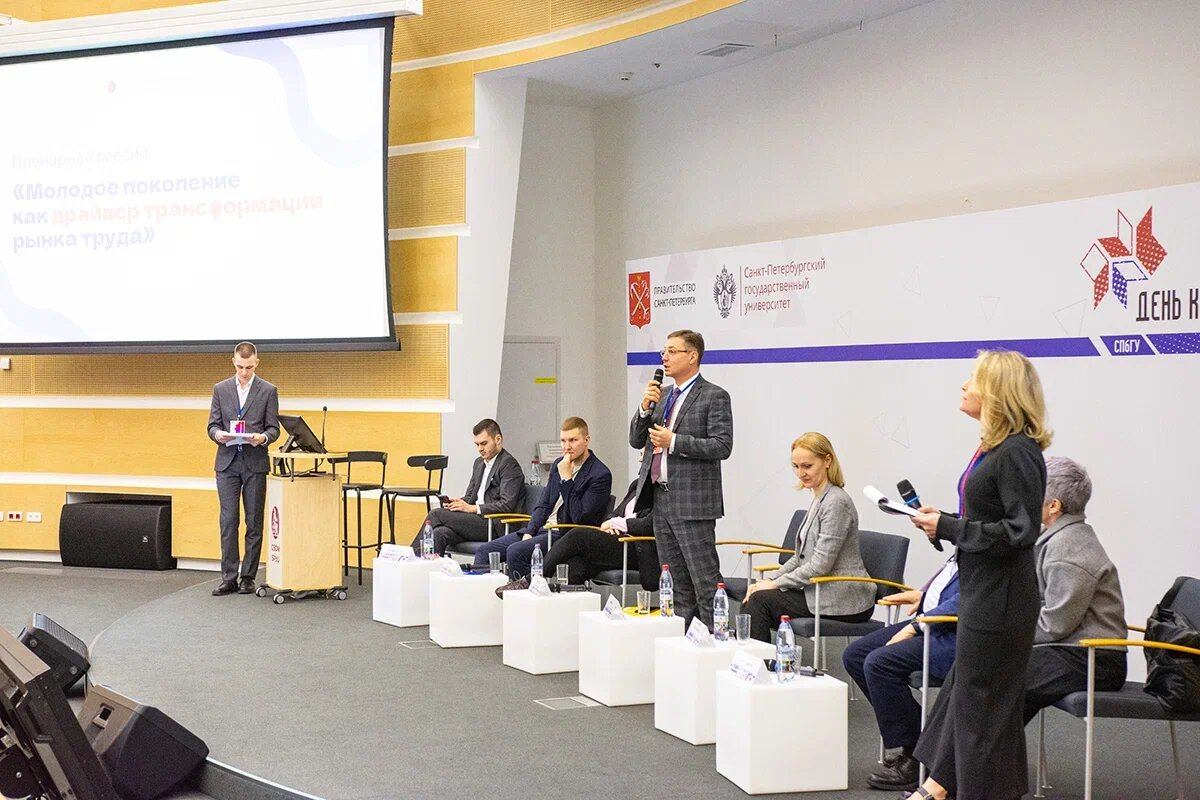
One of the key issues is finding a balance between stimulating flexibility and innovation in the labour market, on the one hand, and ensuring the protection of workers’ rights, on the other hand. Freelancing, platform employment, self-employment, and digital labour are emerging forms of employment. Legal theorists and practising lawyers, relying on international experience, are eager to find compromise solutions on how to fit these new phenomena into the framework of existing legislation and at the same time preserve social guarantees.
However, legal protection alone is not enough to build a successful career. Human capital is vital, including education, work experience, universal skills, and personal qualities. Seemingly, these factors of professional success are non-obvious. They were highlighted by Maiia Rusakova, Director of the Centre for Applied Sociology at St Petersburg University, Associate Professor in the Department of Applied and Field-Specific Sociology at St Petersburg University. Among the key factors for building a successful career, she identified cultural capital, the ability to make informed decisions, artificial elimination of information noise, and social interactions with different people.
The advantage is on the side of those who have unique qualities and non-trivial knowledge. It is vital to clearly see the strategic goal and correlate your daily activities with it.
Maiia Rusakova, Director of the Centre for Applied Sociology at St Petersburg University, Associate Professor in the Department of Applied and Field-Specific Sociology at St Petersburg University
"Another factor is effective communication skills and a respectful attitude towards colleagues. Employees with a high level of communication culture and the ability to effectively organise working time are especially valuable," explained Maiia Rusakova. She added that a professional path is, above all, about developing one’s strengths.
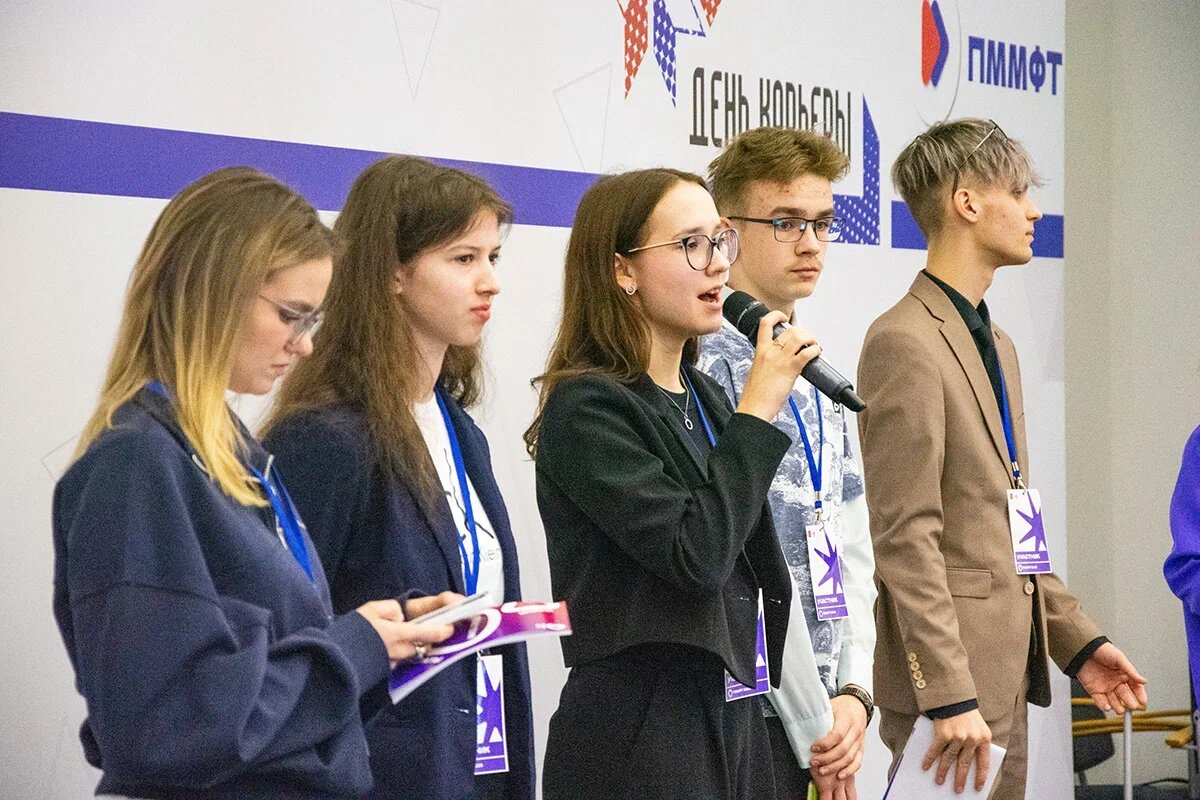
The traditional Spring Career Day was also held within the framework of the Youth Labour Forum. More than 40 leading companies took part in the large-scale stand session, including Avito, Gazprombank, Geropharm, Petersburg Retail Electricity Company, Baltika, Sber, Sovcombank, Yandex, Axenix, Kept, Nexign, Skoltech, Schlumberger, and VK to name just a few.
According to Egor Kosarev, Head of the Internal Communications and Employer Branding Centre at Nexign, in today’s highly competitive labour market, especially in the IT sector, an individual approach to candidates is essential, and we should take into account their motivation and involvement. "Today, the employer needs to personalise the approach to the applicant and fight for their time, offering unique opportunities for development. In this regard, the importance of identifying the individual needs of potential employees increases in order to offer them the most relevant and attractive working conditions that correspond to their career goals and personal interests. And those students who are interested and ask questions, who participate in test tasks, they get into industry," said Egor Kosarev, adding that not only professional competencies are important, but also interpersonal skills, i.e. the ability to adapt and to be a good team player.


